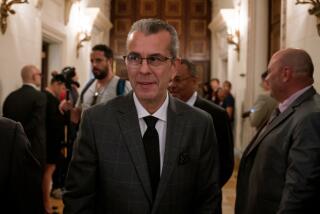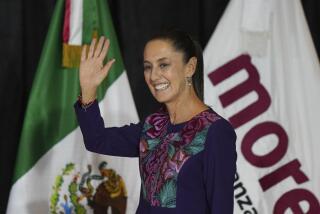Election in Nicaragua
- Share via
Richard Boudreaux faults Nicaragua for having “no tradition of open and honest elections” (“Costa Rica’s Election Furnishes a Lesson in Democracy,” news analysis, Feb. 6). But that should be blamed on the United States and its 45 years of support for the Somoza dynasty, not on the Sandinistas.
How many clean elections does it take to establish a tradition of electoral honesty? The 1984 Nicaraguan elections which I observed were a model of fairness and honesty. The Latin American Studies Assn. 15-member observation team declared the 1984 contest to be honest. So did other groups. This is a short tradition, admittedly, but a precedent has been set.
Your staff writer says Daniel Ortega “rejected demands by the opposition to outlaw presidential succession.” More exactly, it was the National Assembly.
Boudreaux says that “while Costa Rica’s revolution was fought to ensure a multiparty democracy, the Sandinistas came to power with the intent to stay there as a revolutionary ‘vanguard.’ ” But a multiparty democracy is functioning in Nicaragua. Seven parties are in the government. Twenty-one parties are in the race now. The Sandinistas came to power with the intent to stay there. But that is the intention of every victorious party, anywhere in the world.
JAMES E. GOFF
Claremont
More to Read
Sign up for Essential California
The most important California stories and recommendations in your inbox every morning.
You may occasionally receive promotional content from the Los Angeles Times.













